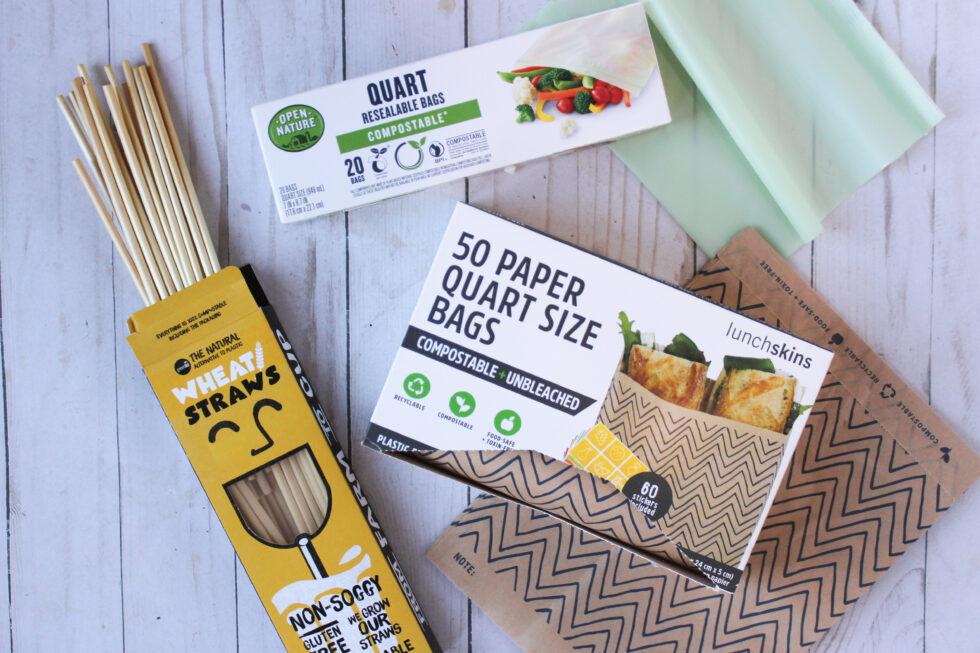
Earth Day Must-Haves
According to the US Environmental Protection Agency, the average American produced around 4.9 pounds of waste per day in 2018, which is around 1,789 pounds a year. Nationwide, this produces 292.4 million tons of waste. Around 50 percent of this waste ends up in a landfill. That leaves a lot of trash! Feeling the pull to better your trash? Us too!
We’ve all heard of the 3 R’s: reduce, reuse, and recycle. While it may not always be at the forefront of our mind with everything else going on in the world, these simple practices are important because they reduce the demand for raw materials such as fossil fuels to create new products, which help protect our environment. Each person has the ability to make an impact, no matter how insignificant it may seem. For example, say a person who typically consumes 3 plastic water bottles a day switches to a reusable water bottle. That person would save 1,095 plastic water bottles a year. If 100 people switch to a reusable water bottle, that’s over 1 million plastic water bottles saved in a year which is a lot less space in that previously mentioned landfill. Small habits lead to big changes.
Did you know? Improperly cleaned or sorted recycled items may end up in the trash. As important as it is to recycle, knowing what your local cycling center’s recycling guidelines are can help ensure your items are actually being recycled. Pay attention to the items that are accepted and items that are not, and look out for rules regarding the size, material, and cleanliness of the product. For example, plastic grocery bags typically need to be recycled separately because the thin plastic can interfere with the recycling facilities’ machines.
Before one of our 18,000 smiling team members has the opportunity to serve you, their training introduces them to our mission of ultimate service, superior performance and positive impact. We believe compassion, kindness and inclusion can transform the world. Our people are part of our sustainability promise for the future. Click here to see what we were able to accomplish in 2020!
Looking for more eco-friendly versions of kitchen products you commonly find in the trash? These alternatives are available in Market Street:
- Plastic bags → Open Nature compostable sandwich bags, LunchSkins
- Straws → Repurpose compostable straws, Wheat straws
- Plastic utensils/plates/cups → Repurpose and Open Nature brands
- Containers → reusable glass containers
- Paper towels/napkins → machine washable dish towels and scrubbing dish cloths
- Plastic grocery/produce bags → reusable grocery bags, mesh produce sacks, or ask for paper instead of plastic!
- Plastic water bottles → reusable water bottles like Corkcicle
Here are some ideas on ways to incorporate sustainable practices into your everyday routine:
- Bringing your own bag to carry groceries → Bring your own bags to carry groceries and produce! With produce in particular, not everything needs to be bagged, such as things with peels that you don’t eat (like bananas, dragonfruit, and onions) or things that you’ll wash and/or cook (like turnips, cauliflower, and bok choy). Your bags also don’t have to be reusable grocery bags specifically, it can be any bag! You can use a backpack, your pockets, or even a suitcase: you do you! We also reward you with 5 cents off your grocery bill per bag that is used each transaction.
- Support local: look for the local family farmers in our produce section or the “Made in Texas” or “Made in New Mexico” tags, pending on which region you are in, to support local businesses. Your dollar stretches further in that purchase. Not only that, but with every dollar you spend you are voting on what we keep on the shelves and what we don’t.
- Running dishwasher when it’s full: Save water by running the dishwasher when it’s full! Less dishwasher cycles = less water used.
- Choosing more environmentally friendly cleaning and kitchen supplies: Products such as dish soap, dishwasher detergent/tablets, trash bags, and sponges typically have biodegradable, compostable or environmentally-friendly options. Ecos and Open Nature brands have more eco-friendly options and can be found in the kitchen and or cleaning supply aisles!
- Reusing scraps: Save your vegetable scraps to make vegetable stock! Put them in a reusable bag (side note: there’s no shame in washing and reusing a plastic bag for this either!) and keep it in the freezer until you have enough scraps to make stock. This includes skins, peels, roots, and other ends. Avoid cruciferous vegetables such as broccoli, cauliflower, and Brussel sprouts as they can make your stock bitter.
Try composting! The process of composting turns your organic scraps back into soil that can be used to fertilize plants. If you don’t have a garden, you can look for local gardens or neighbors to donate to!
